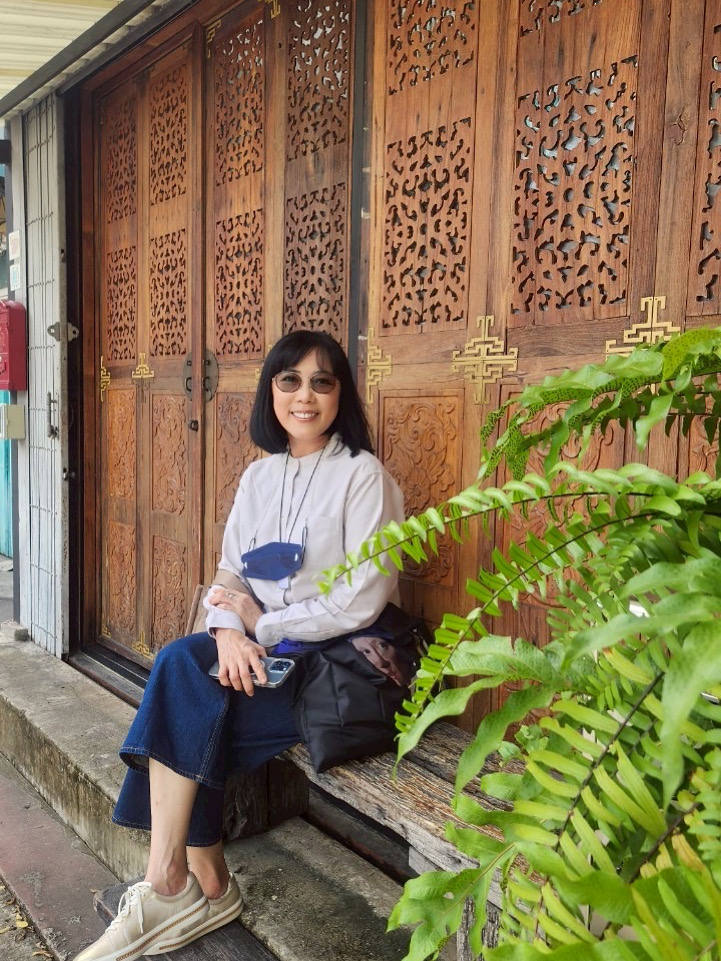เคสเคลม RTX 5090 ที่กลายเป็นดราม่า
ข่าวนี้เล่าถึงกรณีผู้ใช้ RTX 5090 ที่ส่งเคลมไปยัง Asus แต่ถูกปฏิเสธการรับประกัน เนื่องจากพบรอยแตกเล็ก ๆ ที่ตรวจพบได้ด้วยกล้องจุลทรรศน์ Asus จึงเสนอค่าซ่อมสูงถึง 3,350 ดอลลาร์สหรัฐ ซึ่งแพงกว่าราคาการ์ดใหม่ ก่อนจะลดให้ 50% หลังจากเจรจายาวนานหลายเดือน
ผู้ใช้รายหนึ่งส่งการ์ดจอ ROG Astral GeForce RTX 5090 ไปเคลม หลังพบปัญหาจอดับและรีบูตเครื่องบ่อยครั้ง แต่ Asus ปฏิเสธการรับประกัน โดยอ้างว่ามี “surface irregularity” หรือรอยแตกเล็ก ๆ บริเวณขอบ PCB ซึ่งตรวจพบได้ด้วยกล้องจุลทรรศน์เท่านั้น
ค่าซ่อมแพงกว่าการ์ดใหม่
Asus แจ้งค่าซ่อมถึง 3,350 ดอลลาร์สหรัฐ (ประมาณ 116,000 บาท) ซึ่งแพงกว่าราคาการ์ดใหม่ที่ขายอยู่ราว 3,299 ดอลลาร์สหรัฐ ทำให้ผู้ใช้ไม่พอใจอย่างมาก และมองว่าเป็นการจัดการที่ไม่เป็นธรรม
ปัญหาน้ำหนักและดีไซน์
RTX 5090 มีขนาดใหญ่และหนักถึง 3 กิโลกรัม ทำให้ PCB และขั้วต่อ PCIe ต้องรับแรงกดสูงตลอดเวลา ผู้ใช้รายนี้ยืนยันว่าได้ติดตั้งอย่างระมัดระวังและใช้ขาตั้งเสริม แต่ก็ยังเกิดรอยแตกเล็ก ๆ ซึ่งสะท้อนถึงปัญหาด้านการออกแบบที่อาจเกิดขึ้นกับการ์ดรุ่นใหญ่
ข้อเสนอส่วนลดหลังการเจรจา
หลังจากเจรจานานหลายเดือน Asus เสนอส่วนลด 50% ให้ผู้ใช้ แต่กรณีนี้ก็ยังสร้างเสียงวิจารณ์ในชุมชนออนไลน์ ว่าผู้ผลิตควรหาทางแก้ไขปัญหาดีไซน์และการรับประกันที่ชัดเจนมากกว่านี้
สรุปประเด็นสำคัญ
Asus ปฏิเสธการรับประกัน RTX 5090
อ้างพบรอยแตกเล็ก ๆ ที่ตรวจได้ด้วยกล้องจุลทรรศน์
ค่าซ่อมสูงถึง 3,350 ดอลลาร์สหรัฐ
แพงกว่าราคาการ์ดใหม่ที่ขายในตลาด
น้ำหนักการ์ดสูงถึง 3 กิโลกรัม
PCB และขั้วต่อ PCIe เสี่ยงต่อแรงกดและรอยแตก
Asus เสนอส่วนลด 50% หลังการเจรจา
แต่ยังถูกวิจารณ์เรื่องความยุติธรรมในการรับประกัน
ความเสี่ยงจากดีไซน์การ์ดที่ใหญ่และหนักเกินไป
อาจทำให้ PCB แตกแม้ติดตั้งอย่างระมัดระวัง
นโยบายการรับประกันที่เข้มงวดเกินไป
ผู้ใช้เสี่ยงเสียค่าใช้จ่ายสูงแม้ไม่ใช่ความผิดพลาดของตน
https://www.tomshardware.com/pc-components/gpus/asus-quotes-customer-usd3-350-repair-bill-for-rtx-5090-with-microscopic-surface-irregularity-more-than-the-entire-cards-value-offers-50-percent-discount-after-months-of-haggling
ข่าวนี้เล่าถึงกรณีผู้ใช้ RTX 5090 ที่ส่งเคลมไปยัง Asus แต่ถูกปฏิเสธการรับประกัน เนื่องจากพบรอยแตกเล็ก ๆ ที่ตรวจพบได้ด้วยกล้องจุลทรรศน์ Asus จึงเสนอค่าซ่อมสูงถึง 3,350 ดอลลาร์สหรัฐ ซึ่งแพงกว่าราคาการ์ดใหม่ ก่อนจะลดให้ 50% หลังจากเจรจายาวนานหลายเดือน
ผู้ใช้รายหนึ่งส่งการ์ดจอ ROG Astral GeForce RTX 5090 ไปเคลม หลังพบปัญหาจอดับและรีบูตเครื่องบ่อยครั้ง แต่ Asus ปฏิเสธการรับประกัน โดยอ้างว่ามี “surface irregularity” หรือรอยแตกเล็ก ๆ บริเวณขอบ PCB ซึ่งตรวจพบได้ด้วยกล้องจุลทรรศน์เท่านั้น
ค่าซ่อมแพงกว่าการ์ดใหม่
Asus แจ้งค่าซ่อมถึง 3,350 ดอลลาร์สหรัฐ (ประมาณ 116,000 บาท) ซึ่งแพงกว่าราคาการ์ดใหม่ที่ขายอยู่ราว 3,299 ดอลลาร์สหรัฐ ทำให้ผู้ใช้ไม่พอใจอย่างมาก และมองว่าเป็นการจัดการที่ไม่เป็นธรรม
ปัญหาน้ำหนักและดีไซน์
RTX 5090 มีขนาดใหญ่และหนักถึง 3 กิโลกรัม ทำให้ PCB และขั้วต่อ PCIe ต้องรับแรงกดสูงตลอดเวลา ผู้ใช้รายนี้ยืนยันว่าได้ติดตั้งอย่างระมัดระวังและใช้ขาตั้งเสริม แต่ก็ยังเกิดรอยแตกเล็ก ๆ ซึ่งสะท้อนถึงปัญหาด้านการออกแบบที่อาจเกิดขึ้นกับการ์ดรุ่นใหญ่
ข้อเสนอส่วนลดหลังการเจรจา
หลังจากเจรจานานหลายเดือน Asus เสนอส่วนลด 50% ให้ผู้ใช้ แต่กรณีนี้ก็ยังสร้างเสียงวิจารณ์ในชุมชนออนไลน์ ว่าผู้ผลิตควรหาทางแก้ไขปัญหาดีไซน์และการรับประกันที่ชัดเจนมากกว่านี้
สรุปประเด็นสำคัญ
Asus ปฏิเสธการรับประกัน RTX 5090
อ้างพบรอยแตกเล็ก ๆ ที่ตรวจได้ด้วยกล้องจุลทรรศน์
ค่าซ่อมสูงถึง 3,350 ดอลลาร์สหรัฐ
แพงกว่าราคาการ์ดใหม่ที่ขายในตลาด
น้ำหนักการ์ดสูงถึง 3 กิโลกรัม
PCB และขั้วต่อ PCIe เสี่ยงต่อแรงกดและรอยแตก
Asus เสนอส่วนลด 50% หลังการเจรจา
แต่ยังถูกวิจารณ์เรื่องความยุติธรรมในการรับประกัน
ความเสี่ยงจากดีไซน์การ์ดที่ใหญ่และหนักเกินไป
อาจทำให้ PCB แตกแม้ติดตั้งอย่างระมัดระวัง
นโยบายการรับประกันที่เข้มงวดเกินไป
ผู้ใช้เสี่ยงเสียค่าใช้จ่ายสูงแม้ไม่ใช่ความผิดพลาดของตน
https://www.tomshardware.com/pc-components/gpus/asus-quotes-customer-usd3-350-repair-bill-for-rtx-5090-with-microscopic-surface-irregularity-more-than-the-entire-cards-value-offers-50-percent-discount-after-months-of-haggling
💻 เคสเคลม RTX 5090 ที่กลายเป็นดราม่า
ข่าวนี้เล่าถึงกรณีผู้ใช้ RTX 5090 ที่ส่งเคลมไปยัง Asus แต่ถูกปฏิเสธการรับประกัน เนื่องจากพบรอยแตกเล็ก ๆ ที่ตรวจพบได้ด้วยกล้องจุลทรรศน์ Asus จึงเสนอค่าซ่อมสูงถึง 3,350 ดอลลาร์สหรัฐ ซึ่งแพงกว่าราคาการ์ดใหม่ ก่อนจะลดให้ 50% หลังจากเจรจายาวนานหลายเดือน
ผู้ใช้รายหนึ่งส่งการ์ดจอ ROG Astral GeForce RTX 5090 ไปเคลม หลังพบปัญหาจอดับและรีบูตเครื่องบ่อยครั้ง แต่ Asus ปฏิเสธการรับประกัน โดยอ้างว่ามี “surface irregularity” หรือรอยแตกเล็ก ๆ บริเวณขอบ PCB ซึ่งตรวจพบได้ด้วยกล้องจุลทรรศน์เท่านั้น
💰 ค่าซ่อมแพงกว่าการ์ดใหม่
Asus แจ้งค่าซ่อมถึง 3,350 ดอลลาร์สหรัฐ (ประมาณ 116,000 บาท) ซึ่งแพงกว่าราคาการ์ดใหม่ที่ขายอยู่ราว 3,299 ดอลลาร์สหรัฐ ทำให้ผู้ใช้ไม่พอใจอย่างมาก และมองว่าเป็นการจัดการที่ไม่เป็นธรรม
🏋️♂️ ปัญหาน้ำหนักและดีไซน์
RTX 5090 มีขนาดใหญ่และหนักถึง 3 กิโลกรัม ทำให้ PCB และขั้วต่อ PCIe ต้องรับแรงกดสูงตลอดเวลา ผู้ใช้รายนี้ยืนยันว่าได้ติดตั้งอย่างระมัดระวังและใช้ขาตั้งเสริม แต่ก็ยังเกิดรอยแตกเล็ก ๆ ซึ่งสะท้อนถึงปัญหาด้านการออกแบบที่อาจเกิดขึ้นกับการ์ดรุ่นใหญ่
🤝 ข้อเสนอส่วนลดหลังการเจรจา
หลังจากเจรจานานหลายเดือน Asus เสนอส่วนลด 50% ให้ผู้ใช้ แต่กรณีนี้ก็ยังสร้างเสียงวิจารณ์ในชุมชนออนไลน์ ว่าผู้ผลิตควรหาทางแก้ไขปัญหาดีไซน์และการรับประกันที่ชัดเจนมากกว่านี้
📌 สรุปประเด็นสำคัญ
✅ Asus ปฏิเสธการรับประกัน RTX 5090
➡️ อ้างพบรอยแตกเล็ก ๆ ที่ตรวจได้ด้วยกล้องจุลทรรศน์
✅ ค่าซ่อมสูงถึง 3,350 ดอลลาร์สหรัฐ
➡️ แพงกว่าราคาการ์ดใหม่ที่ขายในตลาด
✅ น้ำหนักการ์ดสูงถึง 3 กิโลกรัม
➡️ PCB และขั้วต่อ PCIe เสี่ยงต่อแรงกดและรอยแตก
✅ Asus เสนอส่วนลด 50% หลังการเจรจา
➡️ แต่ยังถูกวิจารณ์เรื่องความยุติธรรมในการรับประกัน
‼️ ความเสี่ยงจากดีไซน์การ์ดที่ใหญ่และหนักเกินไป
⛔ อาจทำให้ PCB แตกแม้ติดตั้งอย่างระมัดระวัง
‼️ นโยบายการรับประกันที่เข้มงวดเกินไป
⛔ ผู้ใช้เสี่ยงเสียค่าใช้จ่ายสูงแม้ไม่ใช่ความผิดพลาดของตน
https://www.tomshardware.com/pc-components/gpus/asus-quotes-customer-usd3-350-repair-bill-for-rtx-5090-with-microscopic-surface-irregularity-more-than-the-entire-cards-value-offers-50-percent-discount-after-months-of-haggling
0 ความคิดเห็น
0 การแบ่งปัน
284 มุมมอง
0 รีวิว




